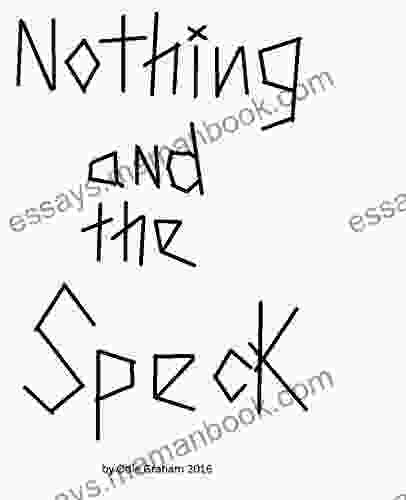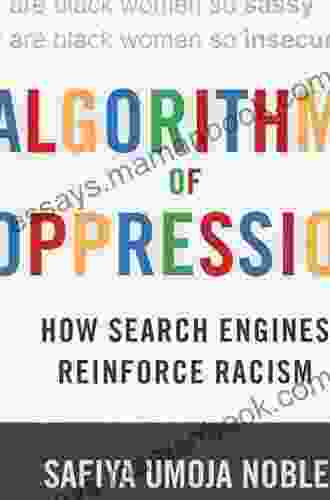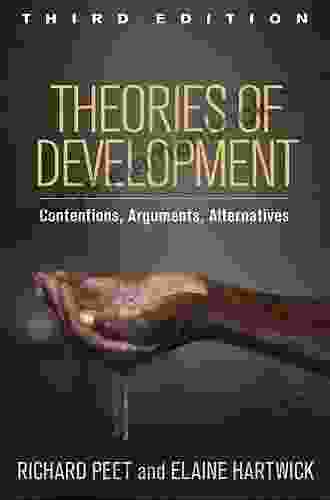Algorithms of Oppression: How Search Engines Reinforce Racism

Search engines are often praised for their ability to connect us with information and resources, but a growing body of research shows that they can also reinforce racism and other forms of oppression.
4.7 out of 5
| Language | : | English |
| File size | : | 5664 KB |
| Text-to-Speech | : | Enabled |
| Enhanced typesetting | : | Enabled |
| Word Wise | : | Enabled |
| Print length | : | 245 pages |
| Screen Reader | : | Supported |
This is because search engines rely on algorithms to rank and display results, and these algorithms can be biased against certain groups of people.
How Search Engine Algorithms Work
Search engine algorithms work by crawling the web and indexing the content of websites. When a user enters a query, the search engine will search its index for pages that are relevant to the query. The search engine will then rank the pages based on a number of factors, including the relevance of the content, the popularity of the page, and the authority of the website.
The problem is that search engine algorithms are not perfect. They can be biased against certain groups of people, such as people of color, women, and LGBTQ people.
Bias in Search Engine Algorithms
There are a number of ways that search engine algorithms can be biased. One way is through the use of training data. Training data is the data that is used to train the algorithm. If the training data is biased, then the algorithm will also be biased.
Another way that search engine algorithms can be biased is through the use of ranking factors. Ranking factors are the factors that are used to rank pages in the search results. If the ranking factors are biased, then the search results will also be biased.
The Impact of Search Engine Bias
The bias in search engine algorithms can have a number of negative consequences. For example, it can:
- Make it harder for people of color, women, and LGBTQ people to find information and resources.
- Reinforce stereotypes and prejudices.
- Perpetuate discrimination and oppression.
What Can Be Done About Search Engine Bias?
There are a number of things that can be done to address the bias in search engine algorithms. One important step is to increase the diversity of the people who work on developing and maintaining search engines.
Another important step is to improve the quality of the training data that is used to train search engine algorithms. This can be done by including more data from a variety of sources, including data from marginalized communities.
Finally, it is important to develop new ranking factors that are not biased against certain groups of people. This can be done by working with experts from a variety of fields, including computer science, sociology, and psychology.
Search engines are powerful tools that can be used to connect people with information and resources. However, it is important to be aware of the potential for bias in search engine algorithms. By understanding the causes and consequences of bias, we can work to create search engines that are more fair and equitable.
4.7 out of 5
| Language | : | English |
| File size | : | 5664 KB |
| Text-to-Speech | : | Enabled |
| Enhanced typesetting | : | Enabled |
| Word Wise | : | Enabled |
| Print length | : | 245 pages |
| Screen Reader | : | Supported |
Do you want to contribute by writing guest posts on this blog?
Please contact us and send us a resume of previous articles that you have written.
 Top Book
Top Book Novel
Novel Fiction
Fiction Nonfiction
Nonfiction Literature
Literature Paperback
Paperback Hardcover
Hardcover E-book
E-book Audiobook
Audiobook Bestseller
Bestseller Classic
Classic Mystery
Mystery Thriller
Thriller Romance
Romance Fantasy
Fantasy Science Fiction
Science Fiction Biography
Biography Memoir
Memoir Autobiography
Autobiography Poetry
Poetry Drama
Drama Historical Fiction
Historical Fiction Self-help
Self-help Young Adult
Young Adult Childrens Books
Childrens Books Graphic Novel
Graphic Novel Anthology
Anthology Series
Series Encyclopedia
Encyclopedia Reference
Reference Guidebook
Guidebook Textbook
Textbook Workbook
Workbook Journal
Journal Diary
Diary Manuscript
Manuscript Folio
Folio Pulp Fiction
Pulp Fiction Short Stories
Short Stories Fairy Tales
Fairy Tales Fables
Fables Mythology
Mythology Philosophy
Philosophy Religion
Religion Spirituality
Spirituality Essays
Essays Critique
Critique Commentary
Commentary Glossary
Glossary Bibliography
Bibliography Index
Index Table of Contents
Table of Contents Preface
Preface Introduction
Introduction Foreword
Foreword Afterword
Afterword Appendices
Appendices Annotations
Annotations Footnotes
Footnotes Epilogue
Epilogue Prologue
Prologue Addy Pross
Addy Pross Brighid O Sullivan
Brighid O Sullivan J T Bleu
J T Bleu Rania Batayneh
Rania Batayneh Elaine Royal
Elaine Royal Paul C Middleton
Paul C Middleton Pamela Ellgen
Pamela Ellgen Adam Vandergrift
Adam Vandergrift Tabor Evans
Tabor Evans Lilly Jones
Lilly Jones Richard Peet
Richard Peet Zoltan Bartok
Zoltan Bartok Nancy W Kelley
Nancy W Kelley Tennessee Williams
Tennessee Williams Adam Vines
Adam Vines Kelly Thompson
Kelly Thompson Adeola Akintoye
Adeola Akintoye Demekane
Demekane Sarah Jefford
Sarah Jefford Lisa Stice
Lisa Stice
Light bulbAdvertise smarter! Our strategic ad space ensures maximum exposure. Reserve your spot today!

 Federico García LorcaUnveiling the Enchanting Tale: The Mirror and the Curse Faraway Castle
Federico García LorcaUnveiling the Enchanting Tale: The Mirror and the Curse Faraway Castle Clark CampbellFollow ·12.6k
Clark CampbellFollow ·12.6k Jaime MitchellFollow ·19.8k
Jaime MitchellFollow ·19.8k Aaron BrooksFollow ·14.2k
Aaron BrooksFollow ·14.2k Garrett BellFollow ·18.1k
Garrett BellFollow ·18.1k Amir SimmonsFollow ·3.9k
Amir SimmonsFollow ·3.9k Damon HayesFollow ·14.9k
Damon HayesFollow ·14.9k Kelly BlairFollow ·16.4k
Kelly BlairFollow ·16.4k Jared PowellFollow ·11.2k
Jared PowellFollow ·11.2k

 Dean Butler
Dean ButlerBlack Widow 2024: A Comprehensive Guide to Kelly...
In 2024, Marvel...

 Gage Hayes
Gage HayesNothing and the Speck: An In-Depth Analysis of Yana...
Yana Toboso's works, particularly the manga...

 Stan Ward
Stan WardThe Best American Poetry 1997: James Tate
The Best American Poetry...

 Corey Green
Corey GreenThe Chance of Home: Exploring the Poetic Landscape of...
Immerse yourself in the evocative world of...
4.7 out of 5
| Language | : | English |
| File size | : | 5664 KB |
| Text-to-Speech | : | Enabled |
| Enhanced typesetting | : | Enabled |
| Word Wise | : | Enabled |
| Print length | : | 245 pages |
| Screen Reader | : | Supported |














